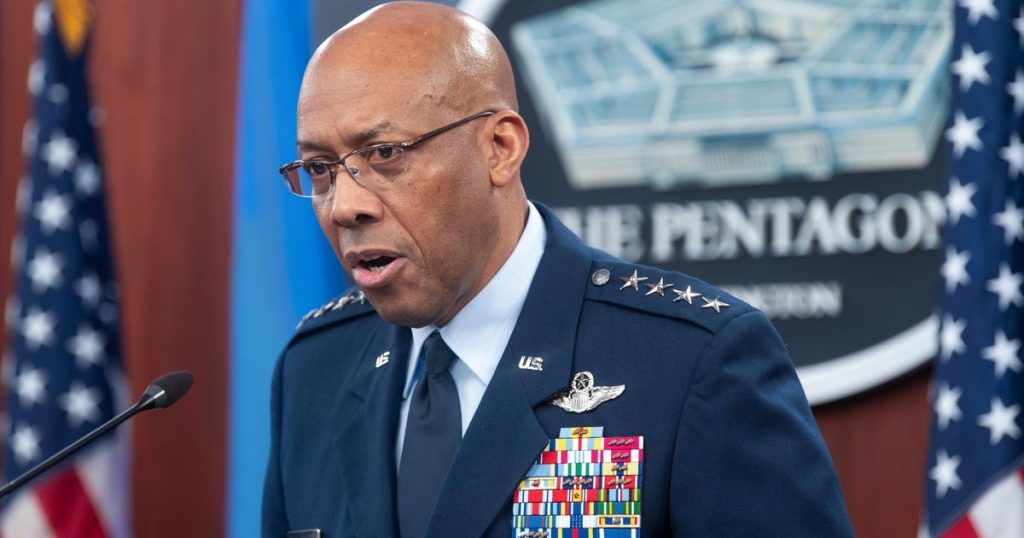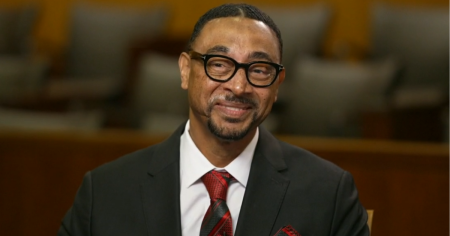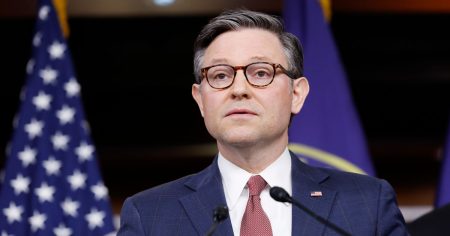A Historic Leadership Shift at the Pentagon: The Firing of General CQ Brown Jr.
In a move that sent shockwaves through the military and political circles, President Donald Trump abruptly fired Air Force General CQ Brown Jr., the chairman of the Joint Chiefs of Staff, on Friday. Brown, a trailblazing figure who became only the second Black general to hold the position, was dismissed as part of a broader campaign by Trump’s administration to reshape the military leadership. This campaign, led by Defense Secretary Pete Hegseth, has been focused on removing officials who support diversity and equity within the ranks. The ouster of Brown, a respected and accomplished leader, has sparked widespread concern about the politicization of the military and the potential undermining of its apolitical traditions.
General CQ Brown Jr.: A Legacy of Service and Advocacy
General CQ Brown Jr. had a distinguished 40-year career in the Air Force, marked by his historic rise to the chairmanship of the Joint Chiefs of Staff, a position he held for 16 months. During his tenure, Brown played a crucial role in navigating the military through significant global challenges, including the ongoing war in Ukraine and the escalating conflict in the Middle East. His leadership was not only defined by his military expertise but also by his willingness to address pressing social issues, particularly racial inequality. In the aftermath of the police killing of George Floyd in 2020, Brown openly supported the Black Lives Matter movement, a stance that made him a target of criticism from the Trump administration, which has been vocal in its opposition to what it labels as “wokeism” in the military.
Brown’s firing is also seen as part of a larger effort by the Trump administration to consolidate power over the military. This has included the dismissal of other high-ranking officials, such as Chief of Naval Operations Adm. Lisa Franchetti and Vice Chief of Staff of the Air Force Gen. Jim Slife. Franchetti, a highly decorated officer and the second woman to achieve the rank of four-star admiral, was also targeted for her commitment to diversity and inclusion. These firings reflect a broader pattern of removing leaders who are seen as insufficiently loyal to the administration’s ideological agenda.
Trump’s Nominee: A Controversial Choice
To replace Brown, Trump nominated retired Air Force Lt. Gen. Dan “Razin” Caine, a veteran F-16 pilot with a long and distinguished military career. Caine’s background includes combat roles in Iraq, special operations postings, and involvement in classified special access programs. However, his nomination has raised eyebrows due to his lack of experience in key roles typically considered prerequisites for the chairmanship, such as serving as a combatant commander, vice chairman, or service chief. While the law allows the president to waive these requirements in the national interest, Caine’s appointment has been criticized as a politically motivated move that bypasses traditional merit-based considerations.
Congressional Backlash and Defense of the Military’s Apolitical Tradition
The firing of General Brown has drawn sharp criticism from congressional leaders, particularly Democrats, who have accused the Trump administration of attempting to politicize the military. Sen. Jack Reed of Rhode Island, the ranking member of the Senate Armed Services Committee, issued a strong statement decrying the move as a threat to the military’s apolitical nature and its subordination to civilian authority. Reed emphasized the importance of maintaining a professional and nonpartisan military, warning that efforts to remake the armed forces into a partisan institution could undermine the very foundations of American democracy.
The Broader Context: Trump’s Efforts to Reshape the Military
General Brown’s firing is part of a broader effort by Trump to assert his authority over the military, even as his second term has seen an intensified push to replace officials appointed during the Biden administration. This includes the removal of thousands of civilian probationary workers and the identification of $50 billion in spending cuts to redirect funds toward Trump’s priorities. The chairman position, established in 1949, is designed to serve as an impartial adviser to the president and the defense secretary, synthesizing the views of the various military branches. Trump’s actions, however, have raised concerns about whether this role will remain apolitical or become increasingly aligned with partisan interests.
Reflections on General Brown’s Legacy and the Future of the Military
General CQ Brown Jr.’s firing has sparked widespread reflection on his legacy and the impact of his leadership. Brown’s willingness to speak out on issues of race and inequality, despite the potential risks to his career, resonated deeply with many within and outside the military. His personal story, as shared in a video message titled “Here’s What I’m Thinking About,” highlighted the challenges faced by Black service members and the systemic biases that persist within the military. His dismissal has been seen by many as a blow to efforts to promote diversity and inclusion within the armed forces, and it has rekindled debates about the role of the military in addressing societal issues.
As the military enters a new era of leadership under General Caine, questions remain about whether the administration’s efforts to reshape the military will undermine its effectiveness and its ability to serve as a unifying force in American society. The firing of General Brown serves as a stark reminder of the challenges of maintaining the military’s apolitical nature in an increasingly polarized political environment.















